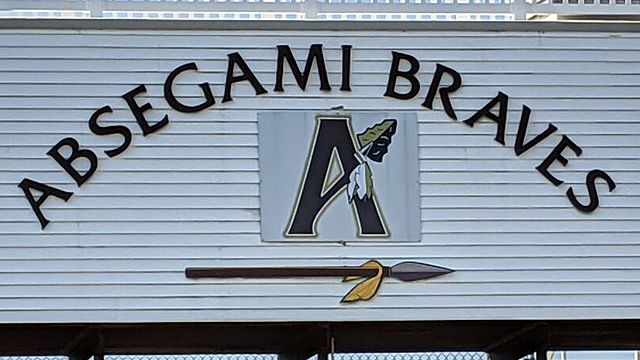
We applaud ongoing courageous conversations advocating for children’s rights throughout our educational systems. And for decades we have carried a concern for Native “themed” mascots. By common definition, mascotry includes team names, images, and logos, as well as related game-day and fan rituals.
Let’s be honest with one another. Citizens of the United States have inherited a legacy of domination by doctrines. Public schools may be conditioned to accept rather than critically examine the use of identity, language, and traditions creating disregard by continuing to dehumanize Indigenous people.
The American Psychological Association recommends the immediate retirement of these mascots (.pdf), stating, “The use of American Indian mascots as symbols in schools and university athletic programs is particularly troubling because schools are places of learning. These mascots are teaching stereotypical, misleading, and too often, insulting images of American Indians. These negative lessons are not just affecting American Indian students; they are sending the wrong message to all students.”
Leadership across the state of Maine listened to the Wabanaki people. On May 16, 2019, the state of Maine made history by passing landmark legislation banning Native American Mascots in all public schools. Communities reckoned with their identity, history, and future relationships with indigenous neighbors.
Changing America reports that the New York State Education Department has asked schools to drop any Native American logos, mascots, or nicknames. If they do not change their mascotry by the end of the 2022-23 school year, the schools run the risk of losing state aid.
According to the 2020 census, only 0.6% of New Jersey residents identified as American Indian and Alaska Native. Beyond education, there are common interests in protecting our children, instilling trust, and developing responsibilities.
We are thankful to the communities that have changed their Native themed mascots. According to state data and Indigenous leadership in the state of NJ, there are more than 70 NJ public schools that are using “harmful mascotry.” These schools have yet to enter respectful, meaningful relationship with Tribal Nations of their homeland; therefore, we suggest that it is not possible to be “honoring them” as professed. Instead, these NJ public schools are perpetuating stereotypes; disregarding honor codes, athletic association conduct, and institutional inclusivity policies; and disregarding student safety in the learning environment. The pride we seek across communities binds our words and actions. Toward “good citizenship” we are to be mindful of discrepancies and seek reparations. This may require changing Native themed mascots.
We wonder, how institutions might celebrate the culture, contributions, and endurance of Indigenous People of their homeland?
by sandra boone Murphy (ACA MM, FCRC Rep.) is a Greater Egg Harbor Regional School District Alumnus (Band Member, Athlete, Class Officer, Honor Society Member, Student Council Award Recipient) & spirited work in progress. #GoFalcons